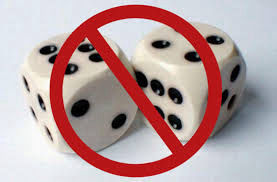
LEGALITY OF THE GAME
Skill Based Games VS Games of Chance
What's The Difference ?

Skill Based Games VS Games of Chance
What's The Difference ?


In most States, Games of chance are games with an outcome that is predominantly influenced by random chance, and participants having insufficient control over the outcome. Such states use the predominance test to examine games.
In most states, Games of skill are games with an outcome that is strongly influenced by some physical or mental ability as oppose to chance. The outcome of such games is strongly influenced by factors such as Knowledge, logic, strategy, common sense, memory, tactic, technical expertise, physical coordination, or strength. Such states use the predominance test to examine games
In some states , when chance is determined to have more than a mere incidental effect on the outcome of the game ( material role) , games that require skill can still be considered games of chance, Such states use The Material Element Test to examine games .
Since games of chance can contain a certain degree of skill, and since some skill-based games can contain a certain degree of chance, most U.S. courts use either the Predominance test or the material element test to examine the role that skill and chance take in determining the outcome of the game.

The Predominance test
Most states have adopted the dominant factor test, which is also known as the predominance test,. To understand this test, one must envision a continuum with pure skill type games on one end and pure chance games on the other. On one end of the continuum, games such as trivia or chess would almost be at the pure skill end, while games like lotteries would be at the pure chance end. There are countless games and contests that fall somewhere in between these ends of the spectrum. Countless games, activities, and contests contain both elements of skill and chance. In most states a game or a contest is classified as game of skill if the game falls predominantly closer towards the skill-end of the continuum.
The Material Element Test
The second (but less commonly used) test method in the U.S that evaluates whether a game is skill or chance-based is the material element test. The test is used to determine whether chance plays a material role in determining a game’s outcome (when chance has more than a mere incidental effect on the outcome of the game). While many games can require a great deal of skill to be exercised by the player, some parts of such games may also force the player to guess at random with no other option made available to influence the outcome by means of mental or physical ability, Although Skill predominates, chance plays a material role in determining the game’s outcome.

Randomization devices, ones that force and determine the win/loose outcome of games without the player having the ability to use mental or physical ability to influence such outcome, do impact the nature of the game to be that of chance. Dice and devices that randomly draw numbers from a container, are a good example of such devices. Whereas even some of the most skill oriented games played online (such as Trivia type games) may contain some degree of randomization in order to output unique challenges without an obvious repeating pattern, the random feature in such real skill games, however, does not force a win\loose outcome without presenting the player with the opportunity to use mental abilities to influence such outcome.